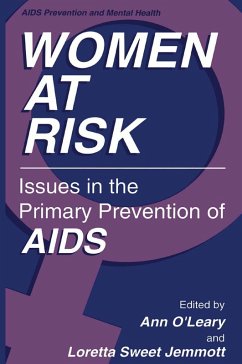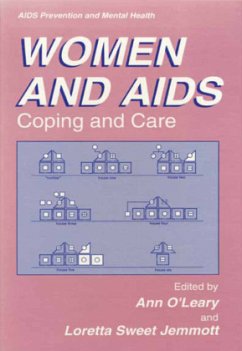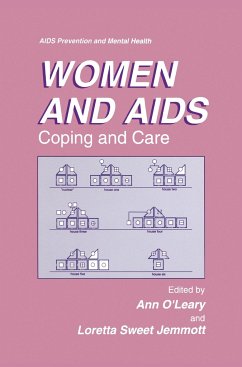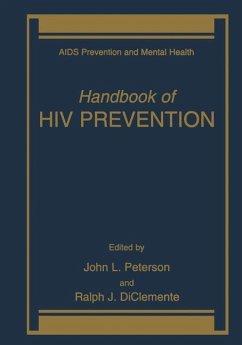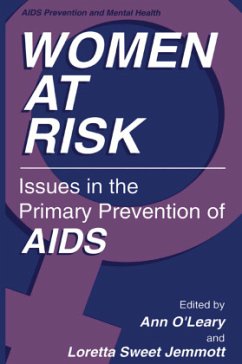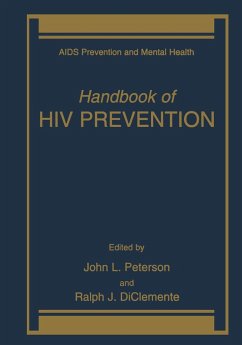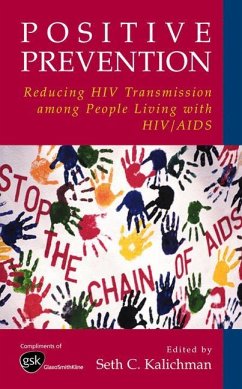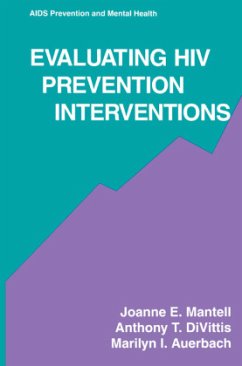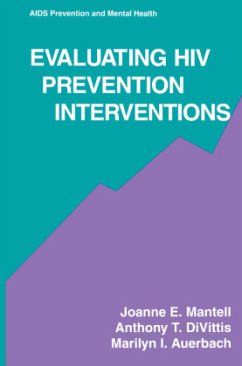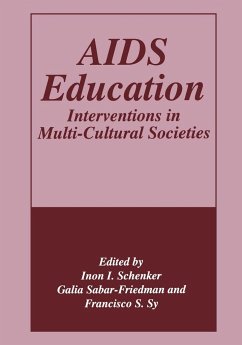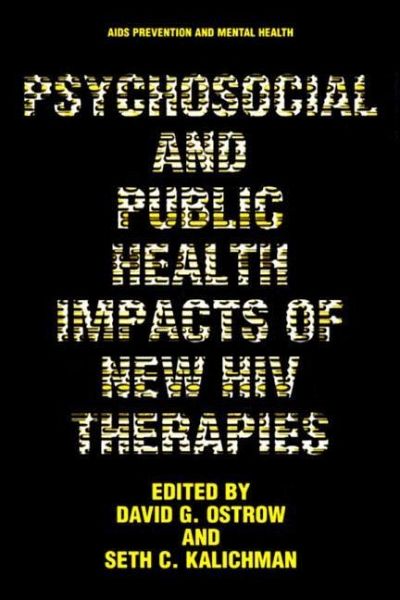
Psychosocial and Public Health Impacts of New HIV Therapies
Versandkostenfrei!
Versandfertig in 6-10 Tagen
76,99 €
inkl. MwSt.

PAYBACK Punkte
38 °P sammeln!
"AIDS is kind of like life, just speeded up. " JavonP. ,heroinaddictwithAIDS, Bronx,NewYork, 1988 "Now I'm not so much scared of dying as scared of living. " Mike D. , heroin addict with AIDS, New Haven, Connecticut, 1998 Within little more than a decade, AIDS has been tranformed from an untreatable, rapidly fatal illness, into a manageable, chronic disease. Most of this tranformation has occurred in the past five years, accelerated by the advent of protease inhibitors and the proven benefits of combination antiretroviral therapy and prophylaxis against opportunistic infections. For people liv...
"AIDS is kind of like life, just speeded up. " JavonP. ,heroinaddictwithAIDS, Bronx,NewYork, 1988 "Now I'm not so much scared of dying as scared of living. " Mike D. , heroin addict with AIDS, New Haven, Connecticut, 1998 Within little more than a decade, AIDS has been tranformed from an untreatable, rapidly fatal illness, into a manageable, chronic disease. Most of this tranformation has occurred in the past five years, accelerated by the advent of protease inhibitors and the proven benefits of combination antiretroviral therapy and prophylaxis against opportunistic infections. For people living with HIV/AIDS, these developments have offered unprecedented hope, and also new challenges. As reflected in the quotes above, some of the anxieties and anticipation of premature dying have been replaced by the uncertainties involved in living with a long-term, unpredictable illness. The role of caregivers for people with HIV/AIDS has also changed radically over this time. Earlier in the epidemic, we learned to accompany patients through illness, to bear witness, to advocate, to address issues of death, dying, and - reavement. The arrival of more effective therapy has brought with it new capabi- ties, but also new complexities, raising difficult problems concerning access to care, adherence, and toxicity.





